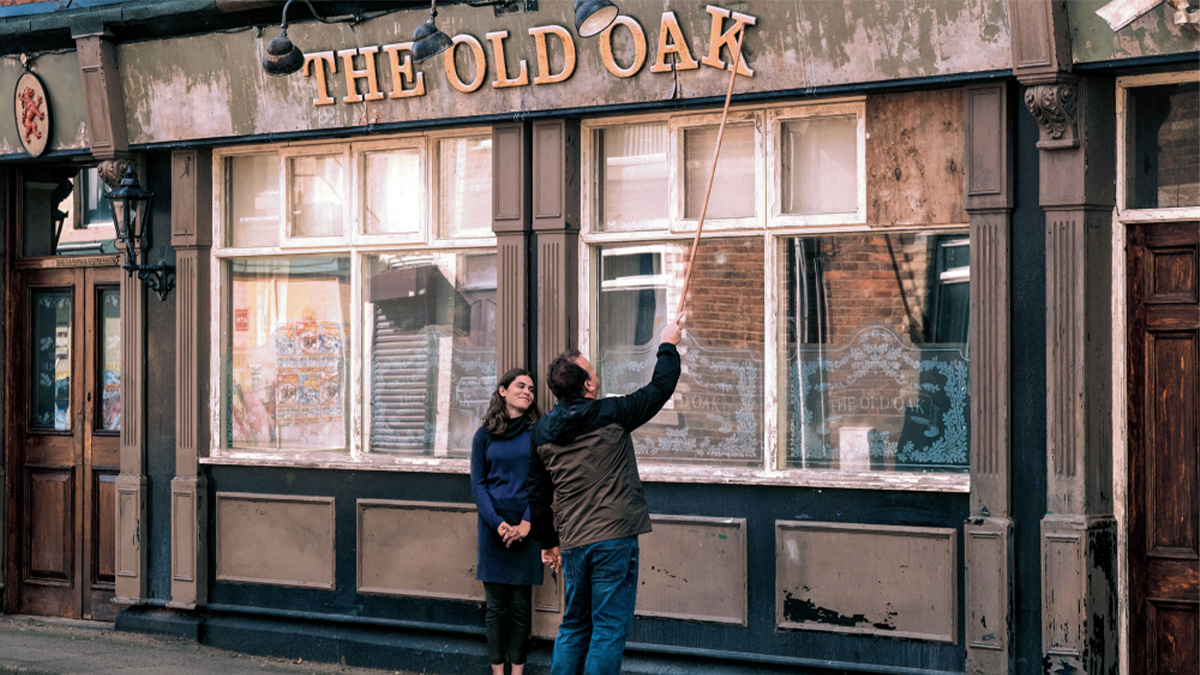The economic, social, and political crisis in France has driven filmmakers to explore a distinctly British genre: the social film. But since The Full Monty, through to Billy Elliot, and continuing with their short film productions, the British have mastered the art of depicting the struggles of the working class. With The Old Oak, Ken Loach, the last of the Mohicans in a cinema largely polluted by superhero entertainment, paints a portrait of an English countryside overrun by a horde of “evil migrants”. Far from venturing into the idealism of most filmmakers who tackle this subject, Ken Loach highlights the frustrations of a rural working class excluded from economic globalization.
The Old Oak: A Corner of the Countryside!
For 20 years, far-right parties and ideologies have been gaining ground in Europe. But why? Most far-right voters believe, rightly or wrongly, that they are the victims of European diktats and globalization. They also imagine that they are being overrun by migrants who, in the long run, aim to replace them and establish an “Islamic Republic” (the Great Replacement theory). While these ideas may seem absurd, they nevertheless resonate widely. Even governments from moderate right-wing backgrounds adopt policies that align with the shocking ideologies of the far right, likely in an effort to maintain peace.
The screenplay is the work of Paul Laverty, who also wrote The Angels’ Share for the same director. The actors, without arrogance or overacting, contribute to creating a very realistic portrayal. Among them are Paul Brannigan and John Henshaw.
The premise of this story is fairly simple: “A small group of refugees settles in an English province hit by a severe economic crisis. An Afghan photographer and the owner of a bar, The Old Oak, try to ease the tensions between the populations.” The genius of Ken Loach undoubtedly lies in the Anglo-Saxon characteristic of accepting communal life, and he approaches the issue from a social perspective. The Old Oak is a no-frills demonstration that the most virulent racist ideas are born out of economic and intellectual misery. In this bar, The Old Oak, which has accompanied the working-class rebellions of the Thatcher era for years, the regulars now want to make it a far-right outlet to express their anti-migrant ideas in the back room. This is the catalyst for the protagonist, who decides to use the back of his shop to host meetings between migrants and locals. In just a few minutes, the British director captures the European problem: exhausted from fighting the big money interests, the working classes are sinking into xenophobia. What has changed in 20 years? Nothing. The factory has disappeared, leaving a sick and aging working class to wallow in its fears.
